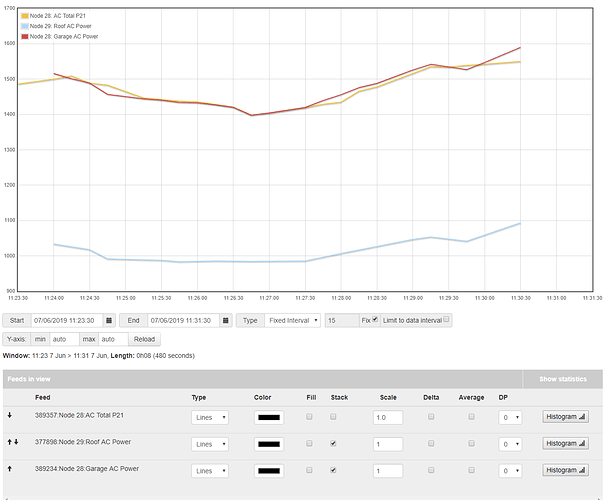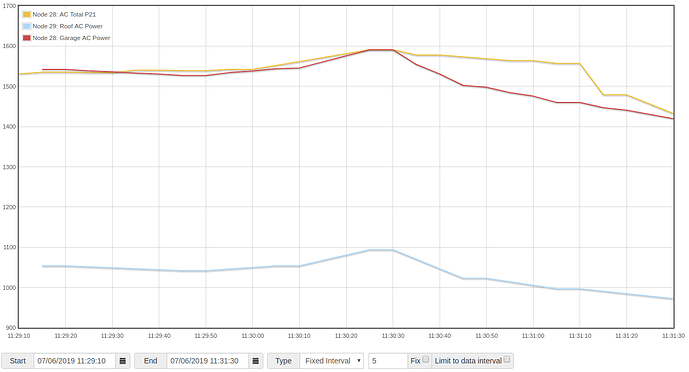Hi Paul, the data comes from two identical, separate emonhubs (on Raspberry Zero W’s), each equipped only with one SMA Bluetooth interfacer. They are connected via Wifi to the internet. The feeds are Realtime and using engine PHPFINA. Each posts the data about once every 10 seconds.
I did look at the data itself (see end of this post), and while admittedly some of the data values are NULL, even when there are all three values present they don’t add up. Maybe you are right that some interpolation of the data values due to different timings in the database is actually causing this. However, the difference can be very significant, as can be see here in 5 sec data (around 11:30:05):
The frustrating bit is that I think it has nothing to do with the way the data is gathered, or displayed. I suspect the values don’t add up as a result of the inputs/feeds being processed. I also tried to add up the inputs, albeit with similar results.
Do you have any tips for me how to get the timing aligned and the difference removed, or at least explained?
2019-06-07 11:30:25, 1591, 1094, 497
2019-06-07 11:30:30, 1591, 1094, 497
2019-06-07 11:30:35, 1578, null, 484
2019-06-07 11:30:40, 1578, null, 484
2019-06-07 11:30:45, null, 1023, null
2019-06-07 11:30:50, null, 1023, null
2019-06-07 11:30:55, 1564, null, 470
2019-06-07 11:31:00, 1564, null, 470
2019-06-07 11:31:05, 1557, 997, 463
2019-06-07 11:31:10, 1557, 997, 463
2019-06-07 11:31:15, 1479, null, 456
2019-06-07 11:31:20, 1479, null, 456
2019-06-07 11:31:25, null, null, null
2019-06-07 11:31:30, null, null, null
2019-06-07 11:31:35, 1409, 966, 443


